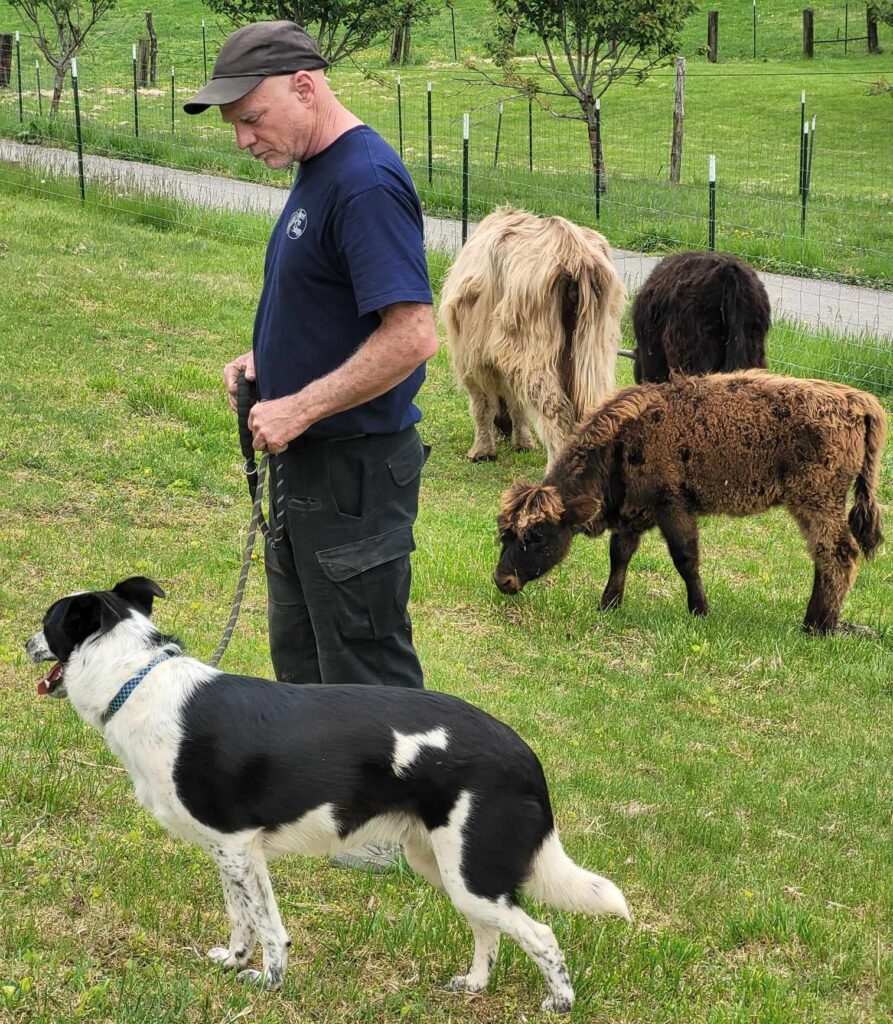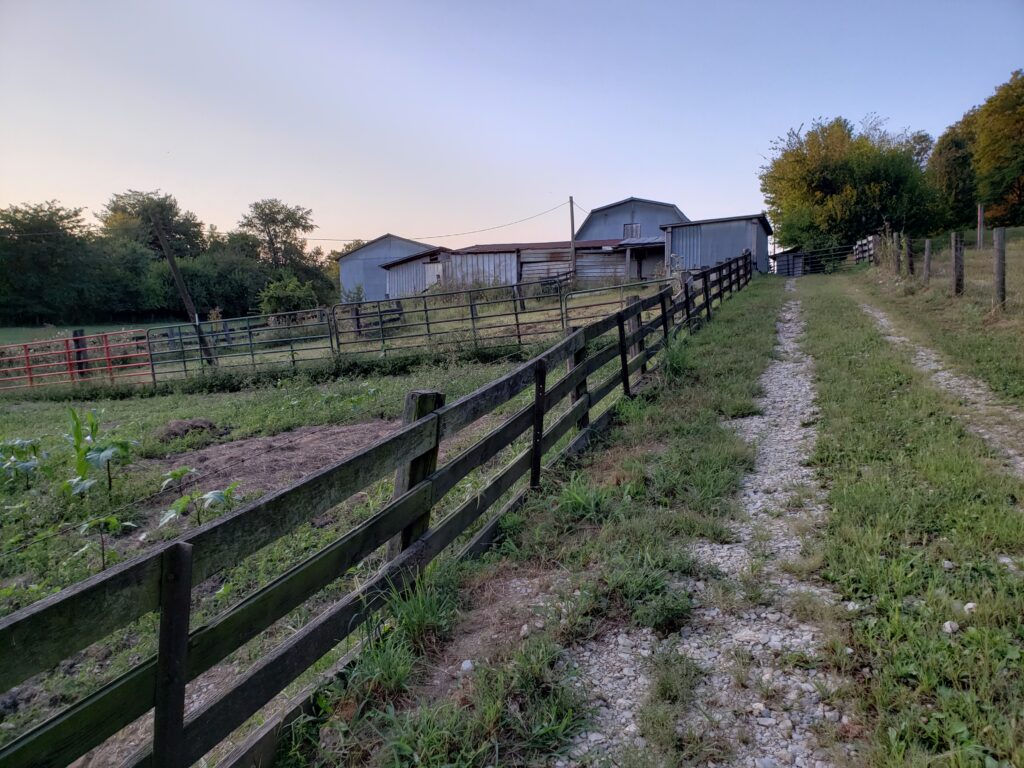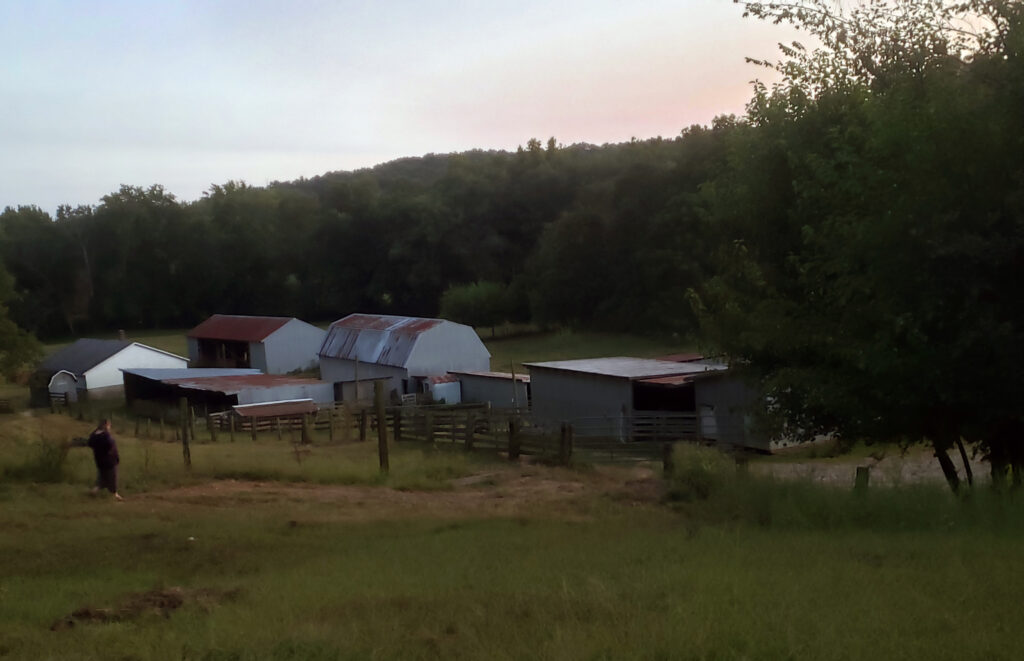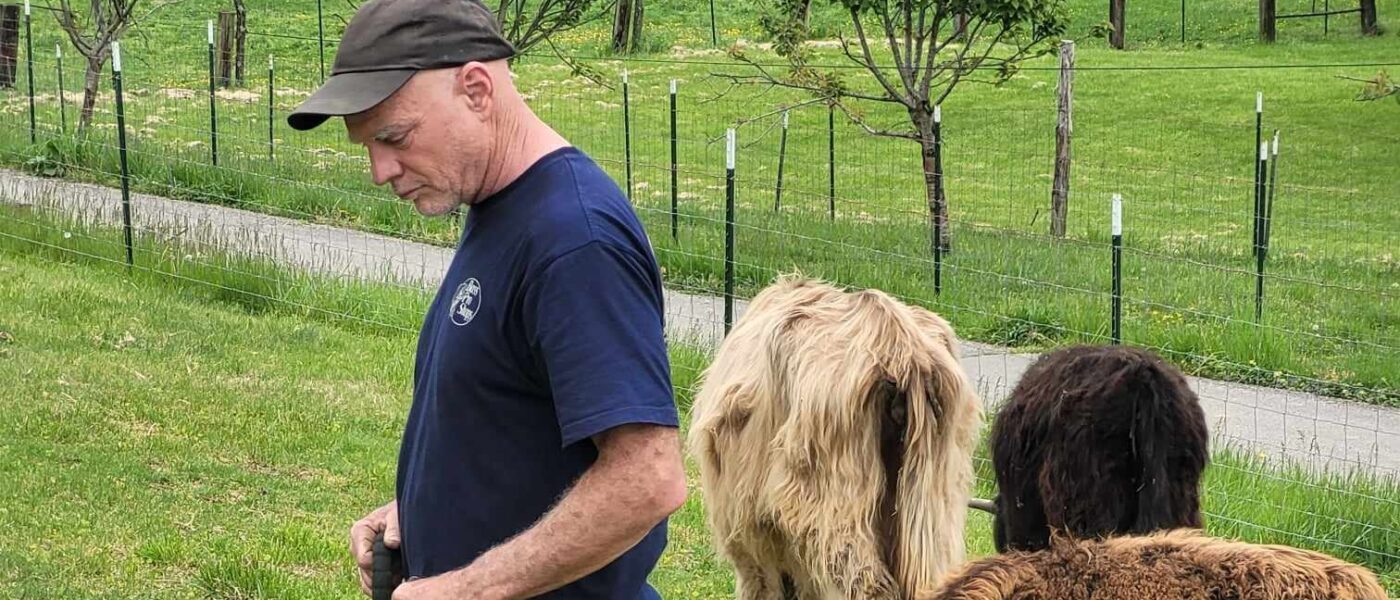This guest post was written by Riley Smith, who works for Farm Aid’s longtime communications partner Vanguard Communications in Washington, D.C., and sits on the Steering Committee of the Progressive Communicators of the District of Columbia. Coming from a long line of farmers, she is an avid plant mom and foodie with a passion for creating a more sustainable future for the ones she loves.
Inspired to start farming by his wife, veteran Phillip Lennon from Celtic Glen Heritage Livestock in Bloomington, Indiana, left his corporate job three years ago for 130 acres and heritage breeds. Previously used for Angus cattle, hogs, corn and hay, the land sits on the spoils of a nearby quarry and was not in good condition when Lennon bought it. Invasive species like multiflora rose and various types of underbrush deterred the previous animals from grazing a significant portion of the land. Rocks from the quarry made the soil tough and massive Angus cattle had compacted what workable soil there was.
The previous owner of the farm was a tenacious man — he adapted to the ever-changing agricultural landscape in the 1970s and 80s by being flexible with what he farmed, raised and grew. Angus and hogs fell by the wayside when industrial farms took over meat production in the mid-80s. After that, the previous farmer shifted from raising animals to growing corn and hay, and took on a 9-to-5 at General Electric just to keep the doors open.
When Lennon bought the farm in 2021, he had one plan: make it work.
When Lennon bought the farm in 2021, he had one plan: make it work. Third-generation Irish, he started by purchasing Celtic heritage breeds native to Ireland and Scotland. That underbrush blocking a good chunk of his land was not an issue for the Highland and Irish Dexter cattle Lennon raises. Within a week, Lennon says, his cattle completely cleared the invasive species that had been running rampant for years.

Now, Lennon is focusing on rehabilitating the downtrodden soil. With help from neighbors and his own four kids, Lennon uses regenerative practices and ensures that the animals on his land were bred to thrive in a mild and humid climate like Indiana’s. Emphasizing sustainability, he tends to his animals humanely and gives them the time they need to come to weight in a healthy manner. His Dexter steers, for example, take around 36 months to get to slaughtering weight, and that’s okay with Lennon.
“A grass-fed animal [is] slower to maturity. The difference is in flavor and leanness of the meat. There are a lot of benefits to waiting. It’s a much healthier animal and it’s better for the environment,” noted Lennon.

His passion for sustainability extends past the fences of his land. Put simply, Lennon believes everyone should have access to locally raised food, and he encourages anyone with the ability and the land to care for the animals they consume themselves.
“Most rural families should be able to produce a great portion of their protein,” Lennon explained. “Think about gentle, easy-to-work animals like heritage breeds. If you have a full-time day job, you can still care for a small number of these animals and provide most of the meat you need for your family. You’d spend about as much time as you do mowing just caring for the animal day to day.”

However, Lennon recognizes that this isn’t always an option. Cities with extensive populations rely on big operations to produce the quantity of foodstuffs needed to feed the people. But he believes these industrial farms can and should do better.
Waste management is a particularly sticky point — while smaller farms like Lennon’s use the manure from the livestock to fertilize pastures and provide grazing for their animals, confined animal feeding operations (CAFOs), especially in Indiana, are known to discharge the waste into waterways. In fact, as of 2022, Indiana had the most miles of rivers and streams deemed too polluted for swimming of any state and 99% of the state’s lakes and reservoirs were found to be unfit for consumption. (Check out Farm Aid’s fact sheet on waterways in the Midwest here.)
Finding ways to reduce and reuse the waste of these massive industrial complexes is a necessity. As for Lennon, “Most of the waste I have is paper feed bags and the rope that is used for bailing. Even in that case, we are starting to use a biodegradable form of bailing string.” His manure fertilizes his land, his fields thrive and his “worn-out pastures have provided all of the fodder for my animals throughout the summer.”




